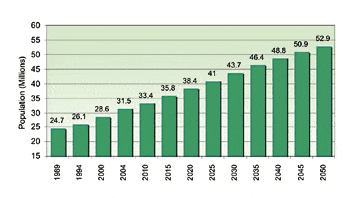Summary:
Hearing care professionals (HCPs) can expand their impact by increasing awareness of the diverse causes of hearing loss—especially chronic illnesses and concussions—and by actively connecting with both current and potential patients through community outreach and professional partnerships.
Key Takeaways:
- Broader Scope of Care: HCPs can support patients with chronic illnesses—such as diabetes, heart disease, and depression—by recognizing related hearing, balance, and cognitive symptoms.
- Collaborative Health Management: Understanding patient comorbidities enables HCPs to coordinate with other healthcare providers for more holistic care.
- Community Outreach Matters: Proactive engagement with schools, local physicians, and community groups can uncover undiagnosed hearing issues and promote early intervention.
Hearing care professionals improve many people’s lives by diagnosing and treating hearing loss caused by age, noise exposure, and genetics. But that’s just the tip of the iceberg. There are many other reasons people experience hearing loss, and many other conditions that HCPs treat. The trick is making more people aware of this, and bringing together HCPs and the people who need their help.
There are people who don’t know they need an audiologist’s care. And there are also people who might be in the care of an audiologist who have conditions the HCP is not aware of.

Chronic Illnesses
HCPs can help their current patients by looking into their medical history for a diagnosis or symptoms of any of the 10 conditions recognized as chronic illnesses by the CDC, all of which can include audiological, vestibular, and cognition issues. As detailed in the article, “Audiology Concerns for Patients with Chronic Illnesses,” these include asthma, cancer (excluding skin cancer), chronic kidney disease (CKD), chronic obstructive pulmonary disease (COPD), coronary heart disease, depression, diabetes, high cholesterol, hypertension, and obesity/fall risk.
As the authors write, “Familiarity with typical symptoms associated with chronic illnesses can help hearing care professionals know which tests to conduct and how to better manage and treat these patients.”
Once aware of a patient’s comorbidities, ideally HCPs can work with their patients’ general practitioners and specialists to address all aspects of a patient’s health on an ongoing basis.
Patient Outreach
Of course, there’s no need to wait until you have a patient in your office with one of these issues. You can also reach out in your community to find patients with chronic illnesses and other conditions who are in need of audiological care.
It’s not a new tactic, but it’s one that works. As shared in the article “Insights from the Outside: Attracting New Patients,” when HCPs establish professional relationships with local physicians, including GPs and specialists, it can help lay the groundwork for referrals to their hearing clinics when needed. And these other clinicians “are in a great position to partner with us in proactively educating patients on the benefits of routine, annual hearing exams.”
Concussions
There are also of course many other reasons for referrals to HCPs for specialized care. One is concussion.
People tend to know the symptoms of concussion such as blurred vision, dizziness, headaches, confusion, and light sensitivity. But they are less likely to recognize tinnitus, noise sensitivity, and hearing loss as being related to this head trauma. Establishing connections with local schools, community centers, and sports programs and providing some educational sessions can spread awareness of the effects concussion can have on hearing, and when people need to see an HCP for an evaluation.
So many people can benefit from hearing care, whether they know it yet or not.
— Melanie Hamilton-Basich
Citation for this article: Hamilton-Basich M. Expanding Audiology’s Reach. Hearing Review. 2025;32(2):6.





